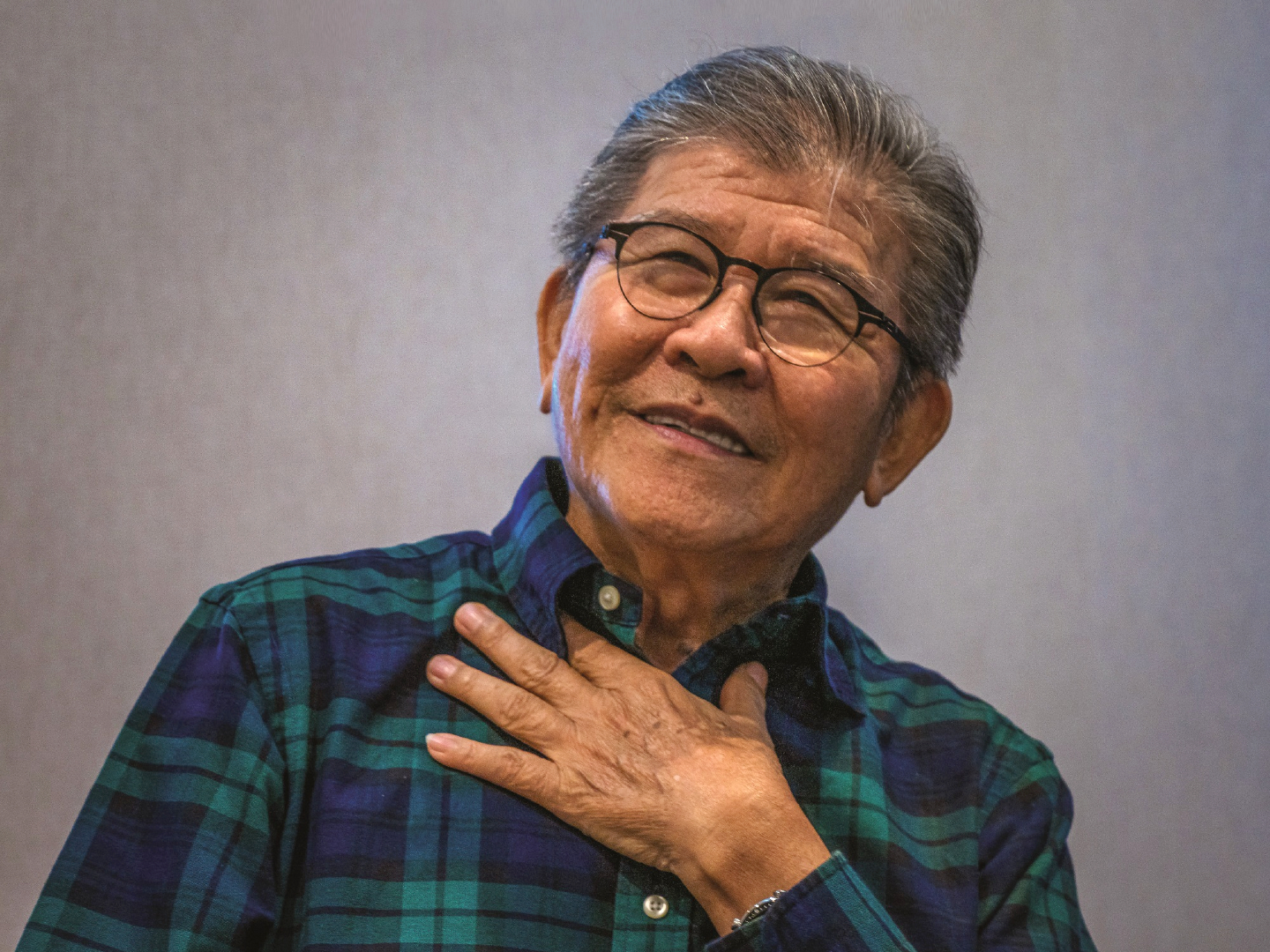
Khor stepped down as chairman in 2013 but remains as group executive adviser (Photo: David ST Loh)
There are some things one never forgets, no matter how far one goes in life. For Datuk Seri Khor Teng Tong, it was landowners trying to evict his family from their home because they wanted the land back.
“Two times, I remember the landowners chasing us out, in the kampung, then the fishing village. I was about eight or nine. In my mind and heart, I was thinking, we are so poor and they’re still chasing us. My mother died when I was five and my father sacrificed a lot for us, ” says the son of a fisherman and ninth of 11 siblings, born in Kuala Kurau, Perak, in 1942.
The importance of having a roof over one’s head stayed with him and when Khor started developing land formerly occupied by squatters, he compensated those who had to vacate their homes by giving them one house per family in return.
“I thought back to when I was poor — it was exactly the same,” says the founder of Penang-based Hunza Properties, who stepped down as chairman in 2013 but remains group executive adviser. “Being able to do something to help makes me feel happy.”
Many of the more than 500 families who had to make way for the Penang International Commercial City (PICC) in Bayan Lepas, a RM6.5 billion project Hunza undertook from 2010, were hardcore poor, he says. “We gave them one free unit for every house. If a large family wanted a second unit, we offered them discounts.”
Hunza was one of the first developers to introduce the one-for-one compensation plan in the mid-1980s. Perhaps that was when the seed of walking the talk germinated in Khor. “I never forget how bad we were financially.”
12_1591951822q.jpg
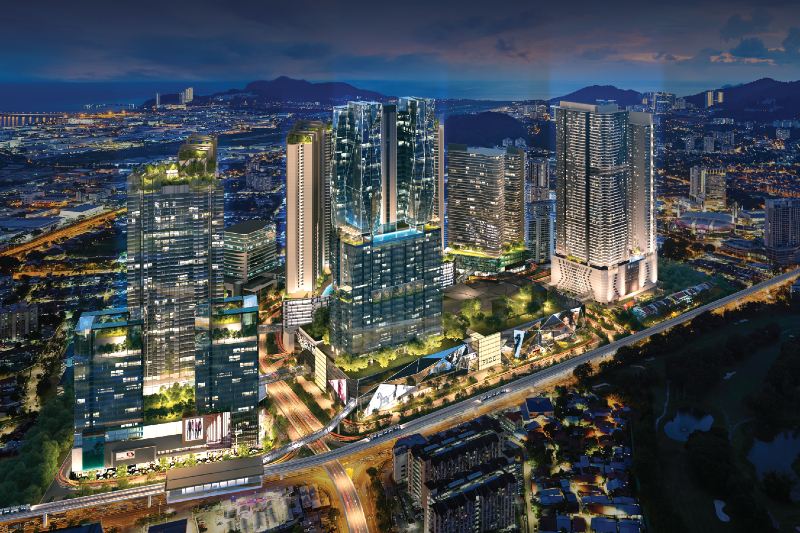
More than empathy for others, hardship was the catalyst that made him put his shoulder to the grindstone to lift his family out of poverty.
“When I was 13, I read a book by Sun Yat Sen where he said, ‘China is so poor. How do I find a way to turn the country around so the people can have a better life?’ I kept that in my mind and the most important thing for me was how to turn my family around.”
Khor studied up until Standard Six, the highest level among his siblings then. After some years of selling marine products in nearby towns, he consulted a brother about building a small factory to process and export frozen seafood to the West. He had no inkling of what it involved, but took the plunge so he could do business with the ang moh (Westerners).
“I knew nothing. I didn’t know about foreign exchange. English also I could not speak,” he admits. Soon enough, he learnt about freezers, hygiene certification, getting workers, food processing, appointing agents, shipping materials, marketing and coming up with contracts with buyers. Penang had companies in the export trade and every night after finishing at his factory in Bagan Serai, Perak, he would head to the island to visit suppliers and ask who wanted frozen shrimps. “I was young and daring. I could do things fast and would drive my car to every corner to find whatever I needed.”
Luck was with Khor and a contact from Japanese trading house C Itoh Ltd brought Soon Seng Frozen Food (now known as Golden Frontier) into the international arena. “He made a lot of money from us. We were also very happy and appreciated what he did for us.” The business grew and his company began exporting seafood to Europe and Australia. The expanding enterprise sealed his reputation in the industry and, more importantly, provided many jobs for fellow villagers and education for their children.
There were mistakes along the way and he stepped on some toes, unwittingly. “I bought a new Mercedes 280 at 34 — a lot of people were envious of me. I was chin chai (Hokkien for “easy-going”) and donated money whenever I could. Some people were not happy because I gave more money than them. I lacked social experience — you cannot give more than the rich.”
It was time to stretch himself socially, and he “joined everything” from sports (cycling, table tennis, basketball) to charity groups and a bit of politics.
2_property_gallery_1525339864.jpg
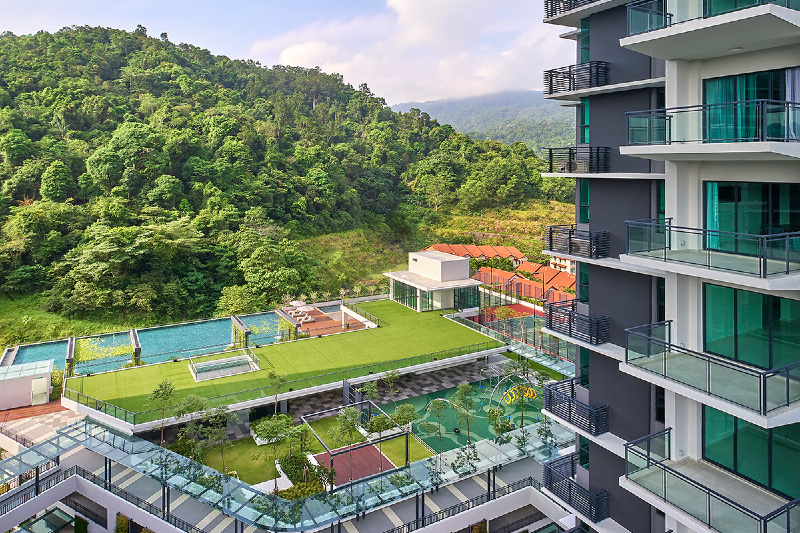
In 1979, access to good education for his children became a priority and he moved the family from Bagan Serai to Penang. He still travelled to and from his factory daily but felt the need to find work closer to their new home. Property presented a fresh opportunity.
At 36, Khor found himself starting from zero again after acquiring a piece of land in Mak Mandin, Butterworth. “We built more than 400 units there. Before we finished our first project, we did another in Nibong Tebal, Seberang Perai — over 200 units.
“To be honest, we did not build good houses for people when we started. We faced lots of difficulties. It was only after we came to Penang island in the 1980s and knew more about the business that we began building quality houses.”
Getting the design right was one costly learning experience. When a house is built on a slope, the roof tiles must be laid at an angle of 22 to 25 degrees so water will not flow back in when it rains heavily, he explains. The architects knew they were new to the trade but did not point that out. “We had to do lots of repairs but never took a single sen from buyers.”
Doing right by them is a commitment Khor aspires towards, with quality and ethics the pillars on which he builds. The word “right” is the acronym for Hunza’s core values: Reliability, integrity, greatness, human development and teamwork.
“When I was doing seafood in a small town, life was very comfortable and I liked it. I could earn RM1 million to RM2 million yearly. Then I took RM500,000 and came to Penang and it was challenging. I could only think of work, nothing else,” says Khor, a firm believer in hard work and talent.
Hiring people was difficult and being firm was even more so — like when he had to let someone go halfway through a project. There were also the many requirements and government departments and councils to deal with.
On the bright side, the tough job improved his disposition. “I had a bad temper when young. Doing housing changed me. If you show temper, who will follow you? So I hold back,” Khor says.
Hunza was listed on Bursa Malaysia in 2000 but underwent a restructuring exercise in 2016 to become a private company again. Today, the company has built close to 16,000 units and there is a team to study design concepts. Khor, who contributes ideas, says, “We learnt a lot from Singapore, especially Suntec City.” It was built by a master developer as an integrated international exhibition and convention hub, to position the country as such.
15_1569201518.jpg
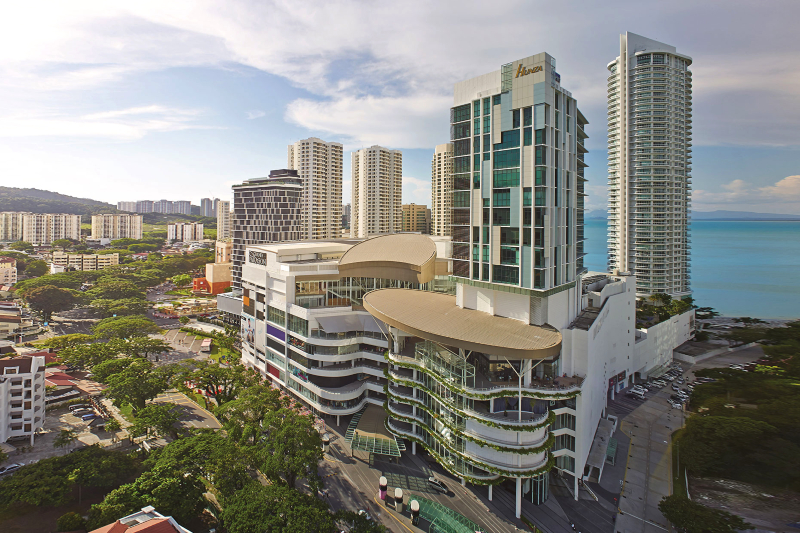
Among the developments he is proud of is Gurney Paragon Mall in Penang, the first shopping mall built, owned and managed by Hunza. The development, which includes luxury residences and St Jo’s heritage building, marked the company’s diversification into real estate investment.
Another project that still brings a smile to his face is Greenlane Heights, Penang, built in the mid-1990s on land evacuated by residents who were duly compensated. “We were planning for listing then and it helped me to be successful. I was happy that I developed and contributed to Ang Thor Snuah (red-soil hill, the old name for the area). The apartments were not luxurious but comfortable. The design was good.”
Just as good students are rewarded for their industry, Hunza has trophies to show. In 2014, St Jo’s — the restored St Joseph’s Novitiate, which has a two-storey chapel built in 1916 — was the World Silver Winner in the Heritage (Restoration/Conservation) Category at the FIABCI World Prix d’Excellence Award 2014.
At the Asia Pacific Property Awards (Development) 2018-2019, Gurney Paragon Mall was named Best Retail Development Malaysia (5 Star) and Alila2 (a luxury condominium in Tanjong Bungah), Best Development Marketing Malaysia (5 Star). In 2018, the company won Hong Kong’s Leader’s Choice award for Excellent Brand of Overseas Property Developer.
Khor himself was the Property Man of 2014 when he bagged the FIABCI Malaysia Property Award. Three years later, he won the Lifetime Achievement Award for Property Development at the 9th World Chinese Economic Summit in Hong Kong.
He is no longer at the helm but there is still a lot to do. Despite the delays posed by Covid-19, the first phase of PICC, with serviced apartments taking up 11% of the 43.5-acre parcel, is expected to be completed by next year. Phase 2, with apartments, offices, a hotel and a mall, will start then.
“Since last year, we have stopped work for less than 10 days and efficiency is about 60% to 70%. Our site control is good and our construction workers are safe. We don’t let them go out but organise lots of things for them,” Khor says. “Property demand will come back — that’s my experience.”
Hunza is looking at overseas markets and Khor is confident about demand. Singapore has more than 700,000 permanent residents from China and wealthy Indonesians heading to Penang for medical treatment will want to have a house. Taiwan is a new market and Hong Kong has shown positive response to Penang, a Unesco World Cultural Heritage Site recently recognised as the third-best place to retire to.
9_1559026093.jpeg
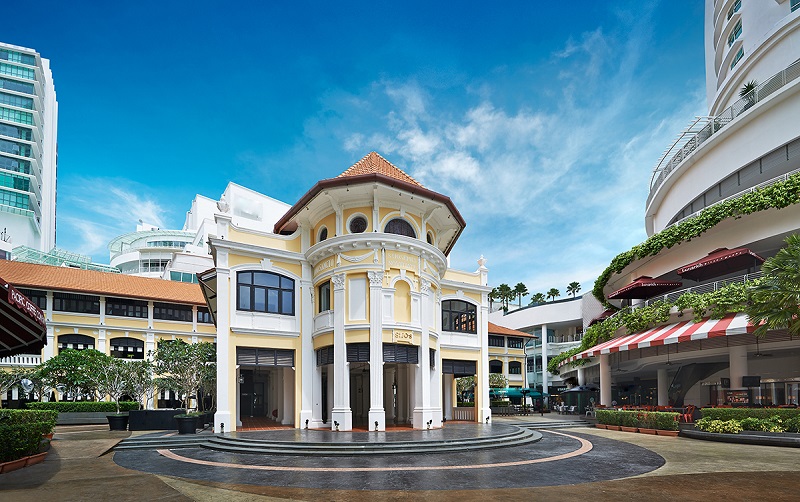
But skilled labour is still lacking, a major problem in the industry. Given the chance, Khor wants to fill that void. “To build quality houses at a good speed, you need skilled workers. If possible, I want to build a vocational school to train Malaysian workers to pick up construction skills. We can bring in professionals from China to do the training.”
Pre-retirement, he had groomed leaders to be part of Hunza’s management team. Among them are his only son, Datuk Khor Siang Gin, now group managing director, and three of his six daughters, who hold executive positions.
His fourth daughter is involved in volunteer work. “Not everyone in the family is in the commercial line and I’m quite supportive. She is a very kind girl. Charity is not easy.”
Family values are important to him, and he imparts them to his seven grandchildren over meals. “Every one or two months, I tell my grandchildren in Penang, ‘You choose what you want to eat and we go for dinner together’. I tell them about our culture, our roots and what has held the Chinese together. I emphasise that, because you cannot run away from what you are, wherever you may go.”
Where he hopes to go, when pandemic restrictions are lifted, are Hong Kong, Poland, the Czech Republic and Ukraine, the last said to be among the world’s best in stem cell technology. “My friend [Datuk Seri Chuah Kim Seah] has been appointed the Ukraine honorary consul in Penang and he wants to bring us to see the place.” Hainan, a resort island that China plans to turn into a free trade hub, is also on his list.
“I enjoy looking at old places and buildings when I travel,” says Khor, chairman of the Penang Xiamen Association. Japan and South Korea, with thousand-year-old buildings featuring Chinese designs, attract him. Vietnam — whose early history was dominated by China, and where old structures from then have similar features — also piques his interest.
He used to visit Europe yearly in his seafood production days and would drive around the Netherlands, and many times from Rome to Venice. He has fond memories of Spain, where “they really know how to enjoy prawns and are very good at cooking. The Italians also know, but not Germans or the Brits”.
Hunza in Pakistan is special to him, although he does not plan a second visit, because it inspired the name for his company. Khor had read a magazine article about the valley famed for its amazing scenery in Gilgit-Baltistan, the country’s northernmost province, and was smitten.
“Waah, the place is so beautiful and has lots of stories. Long ago, the warring groups there decided to stop fighting. Now, the Hunza people live long and peacefully and are very healthy because there is no stress, no pressure and life is easy.”
105339009_l_1.jpg
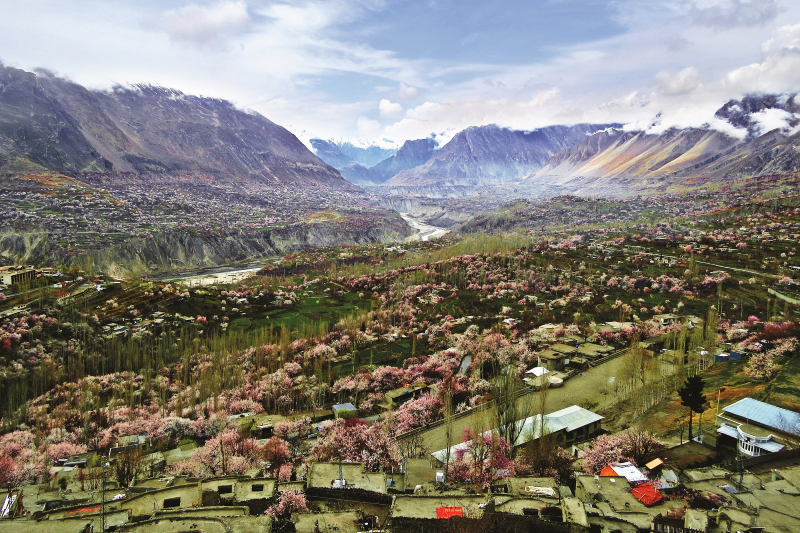
Getting to Hunza Valley, located more than 2,400m above sea level, is not so simple. Visitors have to fly in on a Fokker aircraft. “You can see the snow next to you! The top layer of the hill is all white and the next layer is grey. There are lots of minerals in the area and you can see shining rocks.”
Khor remembers stunning scenery, visiting old buildings, and eating oranges that did not look nice but were very sweet. And, of course, sitting and shaking when airborne. The plane was very safe, he says; his only fear was it hitting the hills. “It was a good experience,” he adds of the hour-long flight.
Looking back on his six-decade commercial journey, is there one thing he wishes he had done?
“Going around the whole country to build houses. I don’t want to lah, because there should be one team there [each] if you go to Kuala Lumpur and Johor Baru. I choose principle, not money. I believe in doing the right thing and have put in lots of effort and time to get a good name.”
Reputation established, he focuses on staying fit with regular exercise, swimming and golf these days. “Actually, I should take time to improve my English. It’s easy to learn compared with Mandarin,” says Khor, who makes it a point to read articles in both languages daily.
New things pique his mind — “You must believe in technology lah, especially the young” — and doing what he can to improve his well-being, like taking herbal drinks and black sesame seeds with his coffee, brings small joys. Especially when his hairdresser tells him that his hair — “I’ve never dyed it” — is looking less grey.
This article first appeared on Sept 13, 2021 in The Edge Malaysia.


